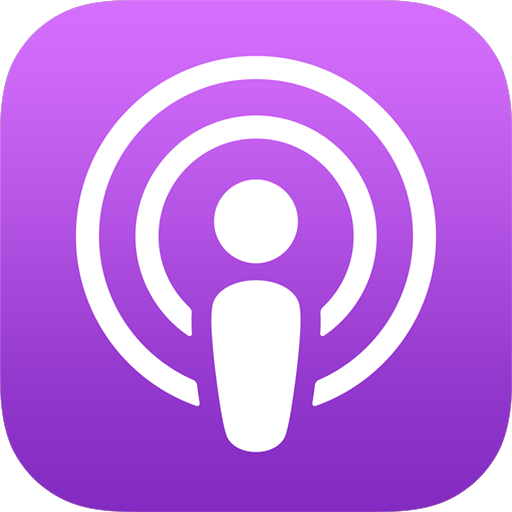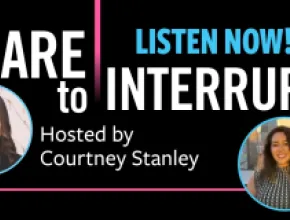Pro Tips for Working and Managing From Home During the Coronavirus Crisis
The coronavirus crisis has led to a revolution in the workplace—at least temporarily—in which the office is now in workers’ homes.
If you’re one of those who has suddenly set up shop in a residence, you’re going to have many questions regarding the most efficient way to adapt your day-to-day work life.
Meetings Today’s Tyler Davidson spoke to Heather Mason, founder and CEO of Caspian Agency, to get her insights on the best strategies to implement if you’ve found yourself working in this “new normal” environment.
Mason, who runs her meetings and events agency out of her Southern California home, provides her essential strategies for setting up a home office, organizing your workday and managing fellow remote team members in a non-traditional, domestic environment.
From simple technology and Zoom-friendly setups to fostering interpersonal relationships in a virtual environment, Mason has a wealth of experience to share.
See all of our coronavirus coverage. Enjoying this episode? View more episodes of the Meetings Today Podcast!
Also available on iTunes, Google Play and Pocket Casts.



Rather read the transcript?
[Start Transcript]
Tyler Davidson: Hello, and welcome to this Meetings Today podcast. We're here today with Heather Mason, founder and CEO of Caspian Agency. Thanks for joining us, Heather.
Heather Mason: You betcha. Glad to be here.
Tyler: And, you know, the reason we're talking with Heather today—it's pretty interesting. She's like myself; she's worked out of her home for many years, and we really wanted to tackle the issue mainly of people that are working from their homes during the whole COVID-19 crisis and maybe aren't used to that environment. And Heather really has a lot of great tips to share with that. But let's start off with Heather. Describe what you do at Caspian Agency and in other realms of the industry?
Heather: Sure, you bet. So I started Caspian Agency in May of 2005. So we're coming up on our 15-year anniversary, and I started it based on two different principles. One, that strategy comes first. So we created this online 10 Essentials training program, really that we’re event strategists at heart. And then the second thing is I wanted to work with companies, organizations that I thought were saving the world. I like to say we're a SWAT team with a bit of Pollyanna. And our clients revolve mainly all around the world, all around the country, but in the social good structure.
Tyler: And then you are a keynote speaker, also, and speak in the meetings industry environment a lot, right?
Heather: Yes, absolutely. So, I speak about how to position ourselves for power, and also about being an entrepreneur. So a lot of the third-party as well as how to speak, how to create presence when you're doing presentations. And you know, any topic really that is within our events industry.
Tyler: Well, great. Thanks for joining us. And, as I mentioned before, both you and I work out of our homes and have for a long time, but there's just a lot of people during this crisis who have really been forced to work out of their homes and probably have either adapted very well or are having some challenges with it. What is some of your advice with a person like that to deal with something like this?
 Heather: Yeah, absolutely. It's definitely a mindset shift, I find. When I first started way back when, working out of my house or out of, actually I have a garage out back—it's this huge, oversized garage that we've set up for our company. I remember it was a difficult transition to think, ‘Now I'm at work.’ And I find setting aside a place that is the workplace if you have the room—and I know sometimes that's an issue—but having a place that no matter what that is where you go to work helps, and then having a routine every morning I also find helps.
Heather: Yeah, absolutely. It's definitely a mindset shift, I find. When I first started way back when, working out of my house or out of, actually I have a garage out back—it's this huge, oversized garage that we've set up for our company. I remember it was a difficult transition to think, ‘Now I'm at work.’ And I find setting aside a place that is the workplace if you have the room—and I know sometimes that's an issue—but having a place that no matter what that is where you go to work helps, and then having a routine every morning I also find helps.
So for me that's walking down the street to Starbucks. I get my coffee, and on the way back I actually think to myself, ‘I'm going to work.’ And then I have a schedule that I try to keep when I'm there. Yeah, I know that's harder when people have kids at home.
Tyler: I have two dogs here but they're locked out right now. They're out barking in the backyard.
Heather: Exactly. But I think, again, and I know this is hard, but trying to segment the day into different blocks is really helpful, whether you have dogs, kids, cats, you know, older parents to take care of. As much as you can, trying to segment that day into something that resembles a routine. It makes the day at home feel less chaotic, because I find what you can do is get distracted by everything that should be done.
You know, at work you don't see the laundry that’s not done. You don't see the fact that the dishes haven't been cleaned. And it takes a lot of discipline to try to compartmentalize those areas. But now is the time for work, and even if there's dirty dishes or dirty clothes, those have their own block of the day that are assigned to them. And I think that alone is a big mindset shift.
And then, of course, there's the hardware that you need besides the mindset shift.
Tyler: Right. Besides the kind of the psychological aspect of it, you need a lot of technology tools to help you.
Heather: Exactly. And I think, you know, one of the things that occurs to me, that again I just take for granted because I've been doing it so long, is it can't be understated how important multiple screens are— multiple monitors—especially because we're doing a lot of Zoom calls, a lot of emails, a lot of documents to look at while you're on a Zoom call.
Trying to do that all on one monitor is really difficult. And the reason I'm saying monitors—because a lot of people think they have to have multiple computers, which isn't always financially feasible. But those monitors—you can order just off a screen off of Amazon pretty cheaply.
[Related Podcast: Wellness in the Age of Coronavirus]
Tyler: Yeah. I think I got mine and it was around $100-$150. It's a big screen—I can't live without it.
Heather: Yeah, it doesn't have to be another computer. But being able to look at documents or email on-screen, while you have people looking at you on Zoom, is really critical in today's environment, because I don't know how many noses I've looked up in the last month that have people going really close to their screen to try to look up a document.
Whereas you kind of want to reserve one screen for your visual screen, especially if you need to present yourself as either the professional leading the call or a professional responding to the call. You really have to be aware of how you're presenting yourself in these video conferencing days, and that to me takes at minimum, two screens. And then there's a couple other things you need as well.
Tyler: And, well, what would those be?
Heather: Well, I would also like to say...I'm glad you asked, Tyler!
Tyler: You pitched up a softball on that one, I think!
Heather: I did! I did! I would also say, you know, the other accoutrements—and again, always being mindful of cost and things like that—but laptop stands that can move your screen or your laptop higher or lower. You can also just use books. I even saw Oprah—one of my heroes—was doing a FaceTime with people and she had her laptop up on a stack of books.
Tyler: Mine is on a stack of books right now.
Heather: That's perfect. Exactly. Just anything that's going to position your laptop monitor, especially the one looking at you, in the right position.
The other thing you want is lighting. You know, as we all know, when we produce events—we do this for speakers—lighting is key. It's also key for you to look good.
So you want to make sure you have everything we would do for a stage, which is your key light, your spotlight, your background light. And that makes a big difference in the way you're going to be perceived and also the way you feel about yourself.
And I think just those few things: multiple monitors, the ability to adjust your laptop, lighting, and then a place for your workstation that hopefully won't be disturbed.
I will say some people with kids, I found, will get either a box or even an old suitcase that they can pop open in the morning, have all their work materials there, and then can close it and lock it in case you have little ones that are going to disturb your desk.
But it's really important that you feel like your work environment is the same thing every day. That adds to productivity. And there's been multiple studies on that.
Tyler: That’s a great tip.
Heather: That’s the hardware. And then I think the software is, besides the schedule, I always set up—there has to be three things, that I write on a Post-it right in front of it—that I cannot be done with my workday until those three things are done. And it's only three. Because yes, we have a longer to-do list, but what are the three that you will not let yourself leave that chair, that room, that closet, wherever you are, and have them done.
That, to me, is a critical piece of discipline when you work at home, because it's easy to let things slide, and that's when I see people get overwhelmed. I've seen that with my remote staff—and I can talk about how I organize and keep them productive—but that's the quickest way I see them become overwhelmed is they don't discipline themselves to get the three top priorities done every day.
Tyler: Mmm, hmm. Interesting. And more on if you're leading a team; what sort of things do you have to take into consideration when you have a team to lead and everyone's working remotely and maybe you and/or they are not used to that?
Heather: Right. This I see a lot, and I will say after 15 years of leading a remote team, we have definitely been able to hone some strategies that work.
So the thing—kind of like my Post-it—the thing that I would not be able to function without is a thing we have called The Stitch. And for any of you older folks out there like me—Gen Xers—we've all heard that old phrase, ‘A stitch in time saves nine.’ And it really just means, ‘Sew up your ratty jacket before it gets a big tear in it when it's just a tiny tear.’ And so, it's ‘Do the work now before it becomes harder.’
So The Stitch is a document on Google Docs, where everyone on our team each week, by Monday morning, has to write down their task list for the week. And it should be things that they can accomplish that week. So we don't want to see things that are years, months in the future. It's what are you going to get done that week.
Everybody fills it out and everybody can see it. That does two things. One, so a lot of accountability. Two, it’s some peer pressure. And there's another bonus—it’s very transparent.
So through the week, we now start to cross those off using the strike-through function. So everyone starts crossing it off—again, more peer pressure. You know, if you're getting all your tasks done and you know, Heather doesn't have any cross-throughs, well, as a boss, you can see very quickly, ‘Hey, what's going on there? Do you do you plan on getting those things done? What’s happening?’
And then by the end of the week, on Monday we review The Stitch verbally on a call, and then on Friday, if we need to, we will review what's gotten done. And then, of course, if there needs to be corrective action, ahem, for an individual, that's when we can also have a separate call with them to say, ‘Hey, you know, what's happening with The Stitch?’ And I find if somebody’s Stitch is really not getting completed after two weeks, I've never seen that turn around without a significant conversation and a significant change in behavior.
So it's a tool that gives you a temperature check very effectively, very quickly.
Tyler: Yeah, interesting. And I imagine a lot of everything we're talking about in this modern day and age has to do with internet bandwidth, also. What observations do you have for that? We're all thrust into this environment where everyone's stuck at home, and the kids are streaming movies on their devices. So I'm sure a lot of people find themselves maybe kind of crunched in the bandwidth department.
Heather: Yeah, you know, you're really pointing out something that now is a big barrier to a lot of productivity, which is just again, that goes back to whether you want to call it...you know, the hardware is what I think is the material even though, obviously, that's not hardware. But well, I guess it is, because it's, you know, the fiber optic cable at a certain point.
What I have found, and this depends on where you are with your neighbors, is that you can set up a really robust business line. But in the era of COVID, I don't know how much you can get with somebody coming out to your house. So, I will say—and again, I feel bad speaking out of turn with regards to people with kids—but if you can lower their bandwidth, which you can, if they're not doing high-definition streaming; if they don't do HD streaming, that will open up a little bit more for you.
And it depends on how old your kids are, how sophisticated they are to know that you take down their bandwidth to standard, but that to me would be the first troubleshooting. Besides, you know, sending them outside in the backyard or to make a cardboard fort in the living room...
Tyler: ...or a jigsaw puzzle.
Heather: Exactly. So if everybody has to be streaming, then somebody's got to give up high-def, and I would say the person making the money needs the HD.
Tyler: I'm sure they'll be very receptive to that as I probably was when I was a kid, right?
Heather: Yeah, exactly. And you can do standard when you're doing any sort of video calls. We have done some just audio, if we find the video isn't working. We reserve that very precious high-definition video for client calls where it is critical, and I think that is key, and then you can do standard outbound/inbound settings on most video streaming to take that load down. But yeah, it's tricky. It's a really good point.
Tyler: You’ve got work politics they enter into this and then family politics, too, right? All colliding at the same time.
Heather: I was gonna say, yeah, people are really dealing with those, and I think you bring up something as far as work politics. One of the things that we do with our team, and I'm sure this can translate into potentially family, too, is we do peer-to-peer rewards as well.
So besides The Stitch being kind of, you know, an accountability tool, it's also a tool for reward. And anyone on the Caspian team can reward any other team member with a bunch of silly names for ’em. A gold star, a fantabulous, an above and beyond, Care Bear.
And, you know, if somebody nominates and some person gets it, it's either a $10 or $15 gift card to Gap, Amazon, Banana Republic, Old Navy, anywhere they want to have money—a Starbucks card—and some of our Caspian staff, one girl bought a couch.
We make them unlimited, and it's just a really fun thing to do on Mondays is we give out awards, and so anybody on the call can say, ‘I want to nominate my fellow Caspianite. I thought they did a great job,’ do a shout-out. I think that's important.
I think the other thing that's important and coming around in Zoom now—you've probably seen them—are dance parties, dress-up parties, and I think that's something, depending on the company, when you bring your kids, your spouse into a team dance party, with your partners and your families, so that everybody can see everybody else's family dancing and being silly.
Tyler: Yeah, I know we had an intercompany Zoom meeting and one of the participants had a big sombrero on and it just made everyone laugh, and I think it's just kind of like—especially right now—just lightening up the situation. You’re not there person-to-person to thank them for something or share a joke or something. So you need to make that little extra effort just to create a happier environment for everyone.
Heather: Oh, I totally agree. I think that that, to me, is a big part of where we are right now. I was telling one of my clients, who was a little down in the dumps about, of course, a canceled event, a postponed event. And I said, ‘You know, I just keep seeing a lot of the gains.’ I'm a glass-half-full type of person.
And I said, ‘You know, one of the interesting benefits of all of this is, when people go to an office and we put our dry-cleaned clothes, and we present our dry-cleaned persona, or whatever it is, it's very different.
But now I'm getting to see into the homes of my client. I'm seeing what's on their bookshelves. I am seeing, ‘Hey, there's dirty laundry in the background.’ And there's a part of this that is very humanizing, and work is work, but we've kept the two separate from our whole selves for too long.
And I think as Westerners, especially, that hasn't served us very well. We're trying to pretend we're things we're not, and life is a lot messier. And I think embracing that is probably going to be one of the silver linings that is going to come out of this, I hope.
Tyler: Yeah. I think we're going to come out of this—and I'm just waiting to read the book from a psychologist on this whole experience, what people psychologically went through during this, and when we come out of it, how maybe our society has changed at least a little bit, huh?
Heather: Oh, I would agree. And I think that part of it with the work at home piece...I know a lot of folks are going to be glad to go to back to the office—I get that. But I also hope there will be more allowance for this type of remote working, because there will be people who realize, hey, this works for, let’s say, their staff. They can trust their staff.
There will be people who rise above; there were people who can't. But there will be people who rise above where they say they can work at home—they're more productive, they enjoy it more, there's less commuting time. This is great.
And then I think there's also going to be the people themselves who go, ‘I don't need to go into the office, I can make this work. I can trust myself to be disciplined, to be oriented toward this kind of both/and mentality.’
And I think that alone—I mean, look at right now in LA., where I live. It has the cleanest air in the world. So that's crazy. And that just shows us that, you know, obviously, there's work in industry that has to get back online or we're in big trouble, but there's also a lot of busyness in this commuting that we've created that was not a rule of physics. It was not gravity—we didn't have to do it. And that part needs to be chopped out.
And I think that would help the environment. It'll help our psychology. It'll strengthen our family bonds, I hope. You know, we bought into this lie in a lot of ways, and I think it'll be interesting to see people come awake from that and go, ‘How do we want to reformat society? Knowing what we got?’
Tyler: So there is a lot of big issues at play here, besides the one right in front of our face, right?
Heather: Oh, yeah. Well, and restarting the economy. I think when you're talking about psychology—and it sounds like you've talked to some other people who know far more about that than I do—but just even definitely the underpinning of anxiety around all of us that have our businesses wrapped up in live events and in-person meetings. You know, it's a steady hum, a steady buzz. But I also think if we think of the essence of what we do, or the essence in what I do—I’m in the connection business. You know, Kodak film made the mistake of thinking they were in the film business. They weren't. They were in the storytelling and entertainment business, and that's why they lost.
I think the only people who will lose, or let that anxiety take over, will have the belief that we are only valuable in the in-person business. We're not. When we think of ourselves as in the connection business, that will never go away.
Tyler: Thanks for joining us. Any other top-line tips you want to share for people working out of their homes before we wrap it up today?
Heather: Well, yeah, you betcha. I think the other thing, when you're at home again—it happens when you're at work, too—but that doggone email notification; I would turn it off. Again, getting chunks of time back is gonna to be your saving grace. And in order to get those three things done every day, you're gonna have to turn that email notification off.
So I will say just the last thing, just in general, is, I talk a lot about mindset shift as a tip, and I think that works both in what we're doing with the business, what we're doing at home, etc. And we do have our online classes—Caspian 10 Essentials. We did offer our online course, and everyone can find that if they go to our site and click...
Tyler: Where can they find that out? A little birdie tells me you have a special offer for people listening today, also?
Heather: Yes. Yes, we do. So they just have to go to CaspianAgency.com and click on 10 Essentials Training. And if you go and you want 50% off, we're offering a big COVID sale right now. And for your listeners, the code would be ‘TOGETHER.’ It's all capitals—TOGETHER. That's 50% off of our online training course. And I think the strategies there are meant to keep us evergreen, meant to turn us into event strategists so that we will come out of all of this on top.
Tyler: Well, great. Thanks for joining us, Heather.
Heather: You bet. My pleasure.
Tyler: And that was Heather Mason, founder and CEO of Caspian Agency. Thanks, Heather, for joining us. And thank you all for joining us for this Meetings Today Podcast. If you're interested in hearing more Meetings Today podcasts on subjects such as this, and really everything else under the sun, just go to MeetingsToday.com, check out our podcast section, and there's a variety of podcasts with industry thought leaders on a variety of topics that are all of importance to the meetings industry.
So thanks for joining us today. And good luck in weathering through this whole crisis like all of us. And go out and make it the best rest of the day you can. Thank you.
[End transcription]
Listen/Read Next: Working From Home Now? A Therapist’s Advice on Maintaining Healthy Family Relationships





